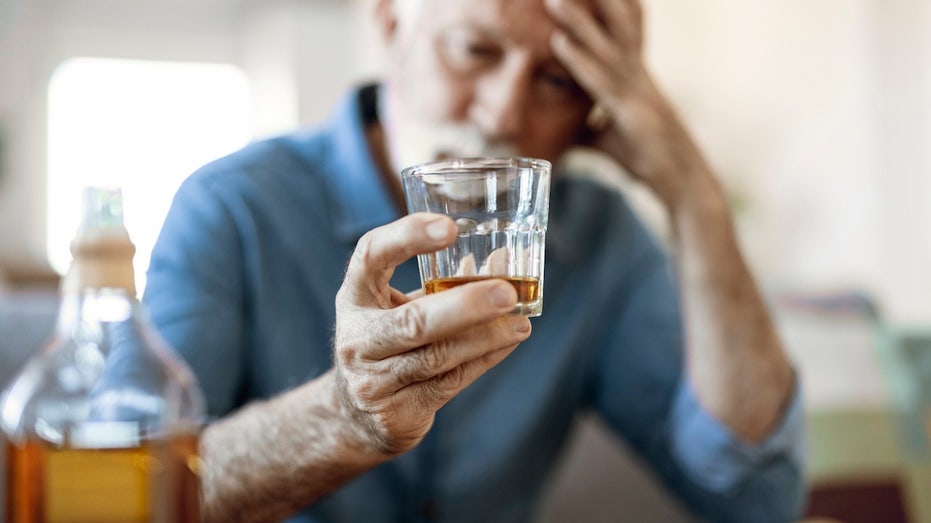Alcohol: The 'Gateway Drug' That Experts Warn Against

Sarah Johnson
March 2, 2025
Brief
Addiction experts warn alcohol may be the ultimate gateway drug, highlighting its prevalence, neurological impact, and role in leading users—especially youth—to try other substances.
Alcohol, a common fixture in American social life, is under fire from addiction experts who warn it could be the ultimate "gateway drug." According to the 2023 National Survey on Drug Use and Health (NSDUH), over 84% of adults in the U.S. have consumed alcohol in their lifetime. Among underage Americans aged 12 to 17, more than 21% admitted to having tried alcohol as well.
Dr. Kenneth Spielvogel, senior medical officer at Carrara Treatment in California, explained that a "gateway drug" is any substance that exposes users to other, often more dangerous, drugs. While marijuana often bears this label, Spielvogel argues that alcohol deserves the crown, calling it the "king" of gateway drugs due to its widespread use and impact on judgment.
"I've personally seen the aftermath," Spielvogel stated. "Hungover victims turning to meth, cocaine, and other drugs for the 'pick-me-up' they think they need."
Chris Tuell, a clinical psychotherapist specializing in addiction, echoed this sentiment. He pointed out that for many young people, alcohol is the first substance they experiment with, which increases their likelihood of trying other substances later. According to Tuell, alcohol impairs decision-making and judgment, paving the way for riskier behaviors.
"Studies indicate that alcohol alters brain chemistry in ways that heighten susceptibility to drug addiction," Tuell noted. Research from the National Institute of Drug Abuse supports this idea, suggesting that early exposure to alcohol can "prime the brain" for heightened responses to other drugs.
Jeremy Klemanski, CEO of Gateway Foundation in Chicago, shared that many patients report starting their substance use journey with alcohol. "They often tell us they began using while drinking or were first exposed to alcohol before moving on to other drugs," Klemanski said. Alcohol's ability to impair critical thinking makes it easier for individuals to justify trying other substances.
Dr. David Campbell, clinical director at Recover Together Bend in Oregon, highlighted the neurological impact of alcohol. "It affects neurotransmitter systems linked to brain reward pathways, which are similarly targeted by other drugs," Campbell explained. This overlap could increase the risks associated with the so-called "gateway effect."
Still, experts caution against oversimplifying the connection. "Correlation does not equal causation," Tuell pointed out. Campbell agreed, emphasizing that factors like mental health, social environment, and childhood trauma often play significant roles in substance use.
Spielvogel offered some warning signs of alcohol dependency, including failed attempts to cut back, annoyance when questioned about drinking, guilt over alcohol consumption, or drinking first thing in the morning. He also warned against abrupt cessation, calling it potentially deadly in severe cases. "If someone has a use disorder, they must seek professional help for detox and recovery," he urged. "Do not do this on your own."
The message is clear: while alcohol may seem harmless to many, its role as a potential gateway drug cannot be ignored. Experts agree that awareness, education, and professional support are crucial in addressing the risks.
Topics
Editor's Comments
It’s unsettling how something as socially accepted as alcohol can quietly pave the way to more dangerous addictions. What struck me is how alcohol’s role as a 'gateway' is both chemical and social—your brain gets rewired, but so does your sense of judgment. Honestly, calling it the 'king of gateway drugs' feels like an understatement given its cultural omnipresence. Maybe we should start treating it less like a casual indulgence and more like the loaded weapon it can be.
Like this article? Share it with your friends!
If you find this article interesting, feel free to share it with your friends!
Thank you for your support! Sharing is the greatest encouragement for us.



